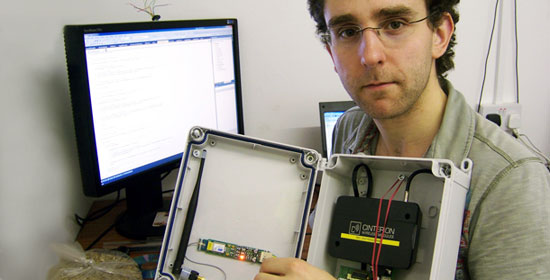 Berkshire-based Farmex — the energy and control specialists — has won a £24,000 grant from the Technology Strategy Board to look at data collection from small-scale photo-voltaic energy collection systems.
Berkshire-based Farmex — the energy and control specialists — has won a £24,000 grant from the Technology Strategy Board to look at data collection from small-scale photo-voltaic energy collection systems.It will investigate the feasibility of using wireless technology to obtain energy generation readings, which can be picked up remotely, avoiding the need for carrying out this task manually.
The feasibility study, costing a total of £33,000, will take place over three months and will utilise research work already carried out by Farmex’s development engineer, David Dobson.
“Feed-in tariffs have encouraged the growth of small-scale photo-voltaic installations on residential properties and commercial premises all around the country. To gain maximum benefit, owners or investors will need to monitor their feed-in tariffs and will need to know, without delay, if an installation has stopped working,” commented Farmex managing director, Hugh Crabtree. “The so-called ‘smart meters’ are too expensive for small-scale installations. Our system is much cheaper.”
Initially, Farmex will be talking to a number of suppliers to ascertain their requirements and get a better idea of any constraints. The company will then set up a full-scale simulation of a typical installation to find out if the technology they developed for farm situations can lead them into the green energy market.

Farmex development engineer, David Dobson, with a receiving base unit device which is used to collect and upload remotely gathered wireless readings from small and medium scale photo-voltaic installations
Farmex



